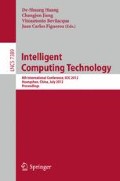Abstract
Codeswitching has become one of the most common language phenomena in these days. Researchers have launched various studies on codeswitching from different perspectives and thus achieved different findings. The Chinese-English codeswitching in Chinese advertising discourse can be categorized into three types: insertional codeswitching, alternational codeswitching and diglossia codeswitching. Moreover, the insertional codeswtiching can be further divided into letter insertion, lexical and phrasal insertion, clausal insertion, and discourse insertion. Chinese-English codeswitching in ads is a normal linguistic and social phenomenon. The purpose of advertisers’ applying Chinese-English codeswitching is mainly to realize their final commercial goals. Good Chinese-English codeswitching in ads can achieve good results, while overuse and misuse of it may leave bad impressions on consumers. Therefore, proper guidance should be offered and other actions should be taken immediately in order to address the problems in Chinese-English codeswitching in ads and to maintain a healthy development of Chinese advertising, which will facilitate the harmonious coexistence between English and Chinese in Chinese advertising, thus contributing to the final social harmony.
Access this chapter
Tax calculation will be finalised at checkout
Purchases are for personal use only
Preview
Unable to display preview. Download preview PDF.
References
Vogt, H.: Language Contacts in Word, pp. 365–374 (1954)
Di Pietro, R.: Code-switching as A Verbal Strategy Among Bilinguals. In: Current Themes in Linguistics: Bilingualism, Experimental Linguistics and Language Typologies. Hemisphere Publishing (1977)
Valde’s Fallis, G.: Social Interaction and Code-switching Patterns: A Case Study of Spanish English alternation. In: Bilingualism in the Bicentennial and Beyond. Bilingual Press (1976)
Scotton, C., Ury, W.: Bilingual Strategies: The Social Functions of Code-Switching. Linguistics (193), 5–20 (1977)
Muysken, P.: Code-switching and Grammatical Theory. In: Two Languages: Cross-disciplinary Perspectives on Code-switching. Cambridge University Press (1995)
Poplack, S.: Sometimes I Start A Sentence in Spanish Y Ternimo En Espanol: Towards A Typology of Codeswitching. Linguistics, 581–618 (1980)
Verschueren, J.: Understanding Pragmatics, Arnold (1999)
Author information
Authors and Affiliations
Editor information
Editors and Affiliations
Rights and permissions
Copyright information
© 2012 Springer-Verlag Berlin Heidelberg
About this paper
Cite this paper
Hua, W. (2012). The Study of Codeswitching in Advertisements. In: Huang, DS., Jiang, C., Bevilacqua, V., Figueroa, J.C. (eds) Intelligent Computing Technology. ICIC 2012. Lecture Notes in Computer Science, vol 7389. Springer, Berlin, Heidelberg. https://doi.org/10.1007/978-3-642-31588-6_74
Download citation
DOI: https://doi.org/10.1007/978-3-642-31588-6_74
Publisher Name: Springer, Berlin, Heidelberg
Print ISBN: 978-3-642-31587-9
Online ISBN: 978-3-642-31588-6
eBook Packages: Computer ScienceComputer Science (R0)

